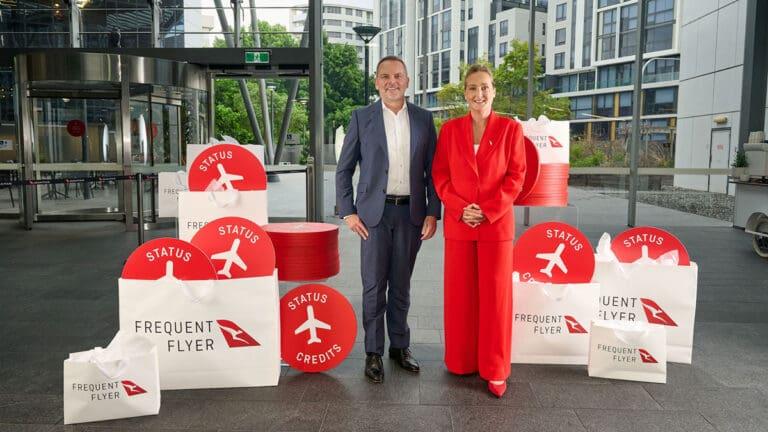
Green Summer Travel Tips for Frequent Flyers
World Conservation Day on July 28 reminds me that even a frequent flyer can make a positive difference to the planet. As of 2025, the travel industry has seen unprecedented transformations, and I’ve noticed that small, deliberate actions on every trip can significantly minimize our carbon footprints. Summer travel usually means higher energy usage and crowded hot spots, but a mindful approach helps protect the places we love most.
1. Pack Light and Reusable

In my own travels, I’ve come to realize that the simplest way to reduce emissions is to start with what’s in your suitcase. According to a 2025 study from the Global Sustainable Tourism Council, trimming the weight of luggage by just 10% can cut flight-related carbon emissions by up to 5%. When I swap bulky items for versatile outfits and ditch single-use plastics in favor of refillable containers, it makes my loads lighter and my conscience clearer.
Aiming to bring only essential, multifunctional gear also makes the journey itself smoother. I’ve found that lightweight suitcases not only help with fuel economy but also save me from lugging around heavy bags on buses and trains. Plus, having a reusable water bottle or collapsible tote bag at the ready does wonders for avoiding the plastic waste that often comes with quick convenience purchases.
2. Choose Non-Stop Flights or Greener Alternatives

Booking a non-stop flight whenever possible is something I prioritize. Multiple takeoffs and landings consume extra fuel, so cutting out layovers can measurably decrease overall emissions. Industry data from the International Air Transport Association (IATA) supports this: they say that avoiding unnecessary stops can reduce your flight’s carbon output by a notable margin.
Of course, air travel may not always be unavoidable, but sometimes an electric vehicle or high-speed train can come to the rescue. A few summers ago, I traveled through parts of Europe using only trains—less stress than airport security, and with breathtaking scenery to boot. It’s good to remember that you can often purchase carbon offsets through certain airlines if flying is your only option. While offsets aren’t a panacea, they’re a meaningful step toward balancing out your carbon costs.
3. Stay at Green-Certified Accommodations

Over the years, I’ve stayed in all types of lodgings, from off-the-grid eco-lodges in Costa Rica to luxurious, LEED-certified properties in major cities. Hotels carrying recognizable eco-certifications—like LEED or EarthCheck—demonstrate that they’re meeting rigorous standards in areas such as energy conservation, waste reduction, and water management.
For instance, when I visited Moab in 2024, I noticed a surge in solar-powered rooms and innovative water recycling programs. Many places even source their ingredients from local farms, so you’ll be supporting family growers as you sample regional specialties. If you’re ever unsure of a property’s credentials, a quick check on reputable sustainability travel sites or a glance at traveler reviews can reveal the genuine eco-commitment of your chosen accommodation.
4. Embrace Zero-Waste Habits

Shifting to zero-waste habits might feel daunting, but it’s more achievable than it sounds. During my travels, I’ve found it helpful to exchange plastic-wrapped toiletries for refillable bottles or shampoo bars. That small switch makes a big difference, especially during peak travel seasons when demand for single-use products skyrockets.
Also, I’ve discovered how helpful digital boarding passes can be. Instead of juggling paper tickets, everything is on my phone—no more misplaced documents or extra clutter in my pocket. And don’t underestimate the impact of bringing your own utensils, especially if you’re on the go. Two summers ago, I spent a few weeks exploring national parks in the southwestern United States and was shocked by how many plastic forks were used and tossed in popular picnic areas. A small utensil set is easy to carry and helps keep those beautiful landscapes clean.
5. Opt for Plant-Based or Local Meals

I’ve always enjoyed trying local cuisines—there’s no better way to immerse yourself in a new destination. But there’s also a strong sustainability angle. Studies suggest that plant-based diets often require less land and water, cutting carbon emissions associated with meat production. Whenever possible, I’ll opt for fresh salads or vegetable-based dishes that showcase the region’s produce.
Visiting local farmers’ markets is another personal favorite. In places like Asheville or the outskirts of New Zealand, you’ll find vibrant stalls brimming with artisan cheeses, fresh fruits, and handmade breads. Not only are you reducing your meal’s travel footprint, but you’re also supporting small businesses and experiencing the local culture in its most authentic form.
6. Engage in Responsible Wildlife Encounters

One of the greatest joys of travel is encountering nature’s wildlife, whether you’re kayaking near dolphins or going on a guided safari. But I’ve seen how quickly these encounters can veer from respectful to exploitive if they’re not well-managed. Ethical tour operators always emphasize leaving animals in peace and preserving their natural habitats.
Organizations like the World Wildlife Fund (WWF) recommend choosing tour companies that follow strict guidelines for wildlife observation, such as maintaining safe distances and refusing to feed animals in the wild. When I was in Costa Rica last summer, a reputable guide taught me that small changes—like avoiding flash photography—help protect sensitive species. It’s inspiring to see how responsible tourism can keep ecosystems intact for generations.
7. Reduce Energy and Water Usage

Summer weather often pushes AC units into overdrive—I’ve been there, sweltering in a tropical climate and tempted to crank the thermostat. However, keeping it at a moderate setting not only cuts electricity usage, it also helps your body acclimate better. According to the U.S. Energy Information Administration, just a few degrees’ difference can slash your energy consumption by as much as 10%.
When it comes to water, small steps add up fast. I try to reuse hotel towels for a couple of days and take shorter showers whenever possible. A friend traveling with me in Asia once joked that a ‘navy shower’—turning off the water mid-lather—became her new normal. From my experience, these conscious choices don’t diminish comfort; rather, they ensure that natural resources remain abundant for our next visit—and our children’s future travels.
8. Support Local Communities

I’ve found that traveling is more fulfilling when I connect with locals and give back to the destinations I visit. Hiring local guides not only enriches the experience with insider knowledge but also keeps money circulating in the community. After a memorable hike in Asheville led by a knowledgeable resident, I found out that all proceeds supported a local trail restoration project—this felt like a win-win for everyone.
It’s also worth seeking out neighborhood restaurants or community-based tours that highlight cultural heritage. I’ve enjoyed some of my best meals in tucked-away spots where no one speaks my language, but the warmth of the hosts speaks volumes. Supporting local artisans, markets, and community-run guesthouses ensures tourism fosters a positive impact instead of creating imbalances in local economies.
Final Thoughts

Green travel starts with a personal commitment to tread more lightly. By choosing carbon-conscious flights, mindful packing strategies, and lodging that champions conservation, you can make sustainable choices that still deliver unforgettable experiences. Every eco-friendly action adds up, especially during peak summer seasons when tourism volumes swell.
I’ve seen firsthand how communities wholeheartedly embrace sustainable initiatives when given the right support from travelers. By recognizing how our choices ripple outward—preserving natural habitats, reducing pollution, and lifting local economies—we become part of a global effort that celebrates the beauty and diversity of our world.
Brad Lightall’s Take
To me, seeing travelers adopt small, planet-friendly habits is like watching an epic wave of positive change. It all starts with curiosity: we research, experiment, and refine our approach until we find efficient, low-impact ways to roam.
This mindset doesn’t mean sacrificing the joys of travel. On the contrary, learning from local experts, tasting regional cuisine, and discovering new ways to travel sustainably make each journey even richer. It’s all about blending fun with responsibility, so we can keep exploring far into the future.
For more expert insights and the latest travel news, be sure to visit BoardingArea.






























